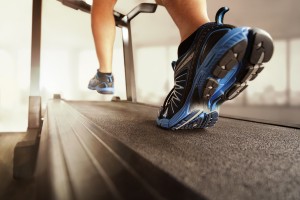
This year could be totally different for you. With New Year’s resolutions, ambitious goals, and dreams for 2025, we can sometimes set ourselves up for failure if we haven’t planned intentionally. Many have heard about making SMART goals, which is a great principle to follow, but there may be more to it. With this blog, we want to give you, our reader, some different considerations when making those goals for 2025.
In January, individuals can start off strong with their goals and intentions. Occasionally, those best intentions diminish shortly into the New Year. One of the reasons that this can happen is that the stressors of life creep in and our expectations for ourselves are unrealistic. With that being said, before we even hit the treadmill or cut the poor health habits, we need to ask ourselves some important questions.
Are your goals fair and realistic?
Too often we make goals for ourselves that far exceed our resources and capabilities. It is important to ask ourselves if our goal is fair, even on our worst day. For example, is exercising every day of the week realistic for you? Is being 100% strict with your eating choices/diet fair? When we can have this viewpoint and consideration, it can help us to reassess the goals we have and make them more realistic.
What is your “worst case scenario” plan?
Have you considered what your “worst case scenario plan” is? What we mean by this is if you had no energy or resources, what steps could you still take to achieve your goal? On your worst day, what tools or resources need to be available to you? This thought can facilitate planning for hard days and can cause even your worst days to be successful.
Are your attempts better than nothing?
Finally, thinking about those days where we have missed the mark, it is important for us to examine our expectations. We are not perfect, nor should we be. Grace is important for any goal. This question helps to give an opportunity for grace, but still movement towards that goal. All or nothing mentality can be crippling, but by examining the small changes and putting value to them, we can move modestly, but successfully, towards our goals.
If you have found this to be helpful, there are many other great pieces of information in Dr. Cook’s book “Stress less and weigh less”. Even if weight loss is not your goal, but reducing stress is, this is a great resource to have. You can find this book on Amazon https://www.amazon.ca/dp/B0C87VD1FD or at our clinic. We also invite you to consider putting a health care provider into “your corner” to help you successfully accomplish your health care goals. If you are ready for that support, feel free to contact our clinic. We are always accepting new patients! Regardless, we hope that 2025 is your best year yet.
Have you benefited from reading this blog? Know someone that would benefit as well? Share, Like, Comment, or Tweet this article, and let us know what you think. If you are interested in Naturopathic Medicine and wanting a different approach to your health care needs, contact our clinic by calling/texting 226-232-7665, and we would be happy to book your naturopathic appointment today!


